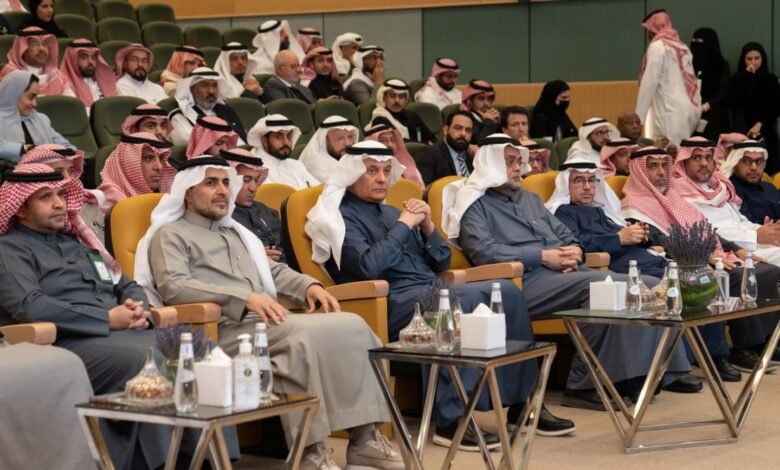NCVC Hosts Workshop on Strengthening Nature-Based Solutions for Carbon Credit

Under the patronage of Eng. Abdulrahman Abdulmohsen AlFadley, Minister of Environment, Water, and Agriculture, the National Center for Vegetation Cover Development and Combating Desertification (NCVC) hosted a workshop titled “Carbon Credit for Nature-Based Solutions.” Bringing together experts and specialists, the workshop aimed to foster knowledge exchange, enhance collaboration, and drive the development of Saudi Arabia’s carbon market by leveraging nature-based solutions as a key tool in tackling climate change. This initiative aligns with Saudi Vision 2030 and supports the Kingdom’s goal of achieving net-zero emissions by 2060.
In his opening remarks at the workshop, Dr. Khaled bin Abdullah Al-Abdulkader, CEO of the NCVC, emphasized the organization’s commitment to advancing nature-based solutions through strategic partnerships. These include collaborations with Singapore’s Carbon Capture Ltd., the International Carbon Registry (ICR), and global organizations such as the United Nations Convention to Combat Desertification (UNCCD) and the United Nations Development Programme (UNDP).
Dr. Al-Abdulkader highlighted that the NCVC has so far planted approximately 135 million trees and rehabilitated 289,000 hectares of degraded land in collaboration with various sectors. These efforts have enhanced soil health, boosted its carbon storage capacity, mitigated desertification, and strengthened ecosystem resilience to climate change—all while naturally reducing carbon emissions.
He also emphasized that the carbon credit program, rooted in nature-based solutions, serves as a vital funding stream for the National Greening Program. This initiative supports the objectives of the Saudi Green Initiative, which aims to reduce carbon emissions by 278 million tons annually by 2030 and achieve net-zero emissions by 2060 through the Circular Carbon Economy framework.
The workshop addressed the role of carbon markets in facilitating the transition to a more sustainable economy, highlighting the impact of nature-based solutions in achieving the objectives of the Saudi Green Initiative and the Middle East Green Initiative. Discussions also covered the environmental and financial benefits of carbon markets, strategies for enhancing the sustainability of environmental projects, and the challenges and opportunities in accelerating the growth of Saudi Arabia’s carbon market. Additionally, the workshop explored the integration between nature-based solutions and carbon markets to maximize both environmental and economic value, as well as the role of policies, regulations, government support, and international cooperation in driving meaningful climate action.
Carbon credit in the vegetation cover sector serves as a crucial tool in addressing climate change. By restoring ecosystems, rehabilitating forests, reclaiming degraded lands, and enhancing biodiversity, nature-based solutions play a pivotal role in carbon sequestration, supporting global sustainability efforts.
As the leading entity responsible for developing, protecting, and restoring vegetation cover, the NCVC actively works to preserve biodiversity, rehabilitate degraded lands, and oversee rangelands, forests, and national parks across Saudi Arabia. The center also plays a key role in monitoring violations against vegetation cover, combating illegal logging, and safeguarding natural resources. Through these efforts, the NCVC continues to advance its vision of fostering a thriving, resilient, and diverse vegetation cover that promotes environmental sustainability and enhances quality of life.




